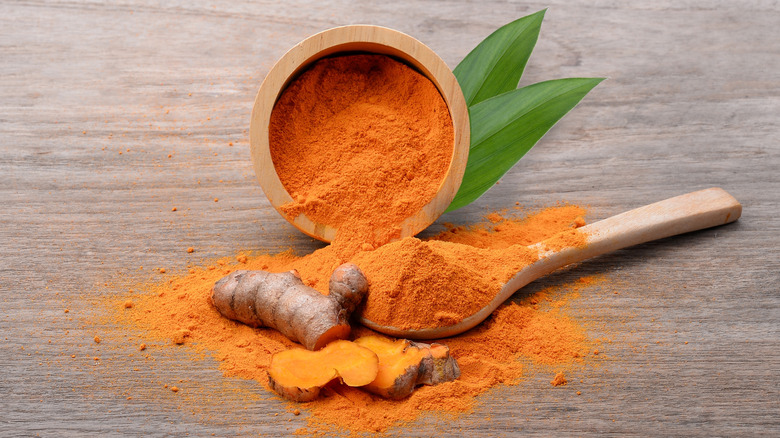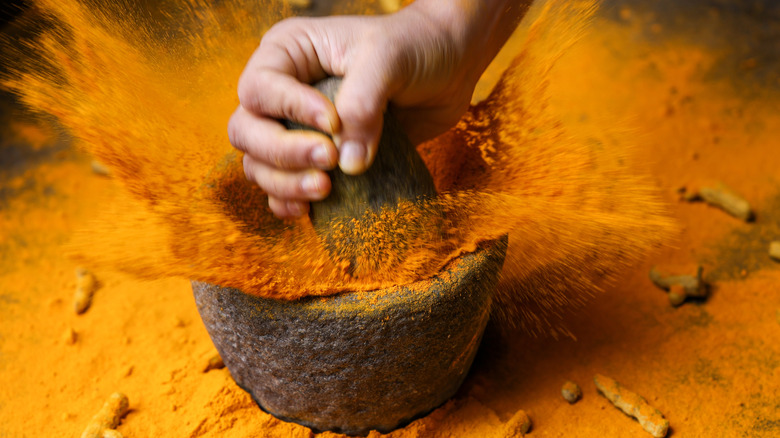Why Turmeric Stains Everything, According To Science
There it is. An unapologetic large, golden blob. The turmeric-based curry you've been meticulously preparing has bubbled over and now there's a stubborn stain on your best white tea towel. We've all been there, and it's not just when making curries; a dusting of turmeric gives sauteed ingredients a gentle boost of umami, so it's a great addition to many dishes. But why does this spice stain so easily? According to experts, there is a scientific reason the spice creates stains, and it boils down to curcumin, the active component that gives turmeric its color.
At first glance, the bright yellow is an obvious issue; in a paste, this quickly absorbs into almost any material — from tea towels to countertops. The curcumin molecules simply bind to the fibers, instantly transferring that vivid color to unwanted surfaces. That's not all, either. Interestingly, there's another reason why these stains are so stubborn. In turmeric, the millions of tiny particles are actually a little oily. As a result, the spice doesn't just discolor items easily; it's not water-soluble, so it is resistant to water-based stain removers.
You can't argue with science. While turmeric may be the golden child of your spice rack, handling turmeric can be a real nightmare so you need to be careful.
What if disaster strikes?
Even with this important warning, hindsight is a curse and a blessing. So, what should you do if disaster strikes? Unsurprisingly, removing a turmeric stain requires a specific set of steps. Water won't work. So instead, put your faith in this white vinegar tip for removing pesky turmeric stains.
Apply white vinegar liberally and blot — never rub — to remove stains from fabric. Time is of the essence, so preferably keep vinegar with a high acetic acid content on standby. On countertops, add baking soda into the mix; this works like magic when left to sit for a few minutes (just be wary of wooden surfaces). For turmeric-dyed dishes, simply soak them for a prolonged period in a sink full of hot water and vinegar. There is good news, too. While fast action is key, once you've got the process in motion, time actually heals some wounds. Curcumin is unstable when exposed to UV, so leaving the offending item in direct sunlight might also help. A few days could be all it takes to fade its intensity.
In short? Remember that water is only useful for the intriguing test to determine if your turmeric is pure. Instead if your dinner recipe leaves you with stained kitchen equipment, stick to vinegar and good old sunlight to extract pesky stains.

